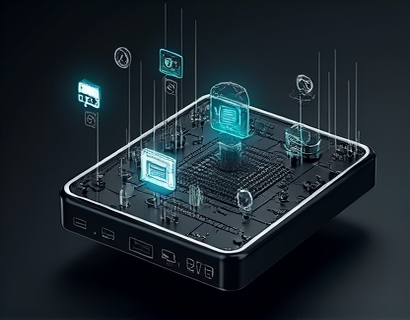Instant Expert Healthcare Insights: Empowering Personalized Medical Support with Advanced AI Technology
The integration of artificial intelligence in healthcare has ushered in a new era of personalized medical support, transforming the way individuals access and utilize expert healthcare advice. This shift towards AI-driven healthcare solutions is revolutionizing the industry, offering unprecedented opportunities for patients to receive timely, accurate, and tailored medical insights. An AI-powered platform stands at the forefront of this transformation, providing users with instant access to personalized healthcare solutions, expert advice, and reliable information. This article delves into the intricacies of how advanced AI technology is reshaping the healthcare landscape, focusing on the benefits and potential of such platforms in empowering individuals to make informed health decisions.
Understanding the Role of AI in Healthcare
Artificial intelligence in healthcare encompasses a broad range of applications, from predictive analytics and diagnostic tools to personalized treatment plans and patient monitoring systems. The core advantage of AI in this domain lies in its ability to process and analyze vast amounts of data swiftly and accurately, far beyond human capabilities. This capability is particularly valuable in healthcare, where timely and precise information can significantly impact patient outcomes. By leveraging machine learning algorithms, natural language processing, and deep learning techniques, AI systems can identify patterns, predict health risks, and provide insights that enhance the quality of care.
One of the most impactful applications of AI in healthcare is the provision of personalized medical support. Traditional healthcare models often struggle to offer tailored advice due to time constraints and the complexity of individual health profiles. AI-driven platforms bridge this gap by analyzing a user's medical history, lifestyle, and real-time health data to generate customized recommendations. These platforms can suggest dietary changes, exercise routines, medication adjustments, and even alert users to potential health risks based on their unique circumstances. The result is a more proactive and personalized approach to health management.
Instant Access to Expert Advice
One of the most compelling features of AI-driven healthcare platforms is the ability to provide instant expert advice. In traditional healthcare settings, accessing expert opinions often involves lengthy consultations, waiting periods, and sometimes, geographical limitations. An AI-powered platform eliminates these barriers by offering immediate access to expert-level insights. Users can input their symptoms, medical history, and current health status, and receive instant, data-driven advice. This immediacy is crucial in scenarios where timely intervention can make a significant difference, such as managing chronic conditions or addressing acute health issues.
Moreover, the expert advice provided by these platforms is not just instant but also informed by the latest medical research and guidelines. AI systems are continuously updated with the newest findings, ensuring that the advice given is based on current best practices. This combination of speed and accuracy makes AI-driven platforms an invaluable resource for individuals seeking reliable healthcare information.
Enhancing Patient Empowerment
The empowerment of patients is a cornerstone of modern healthcare, and AI-driven platforms play a pivotal role in this movement. By providing users with instant access to personalized medical insights, these platforms equip individuals with the knowledge and tools needed to take control of their health. This empowerment extends beyond mere information; it fosters a sense of agency and responsibility in managing one's health. Patients can make informed decisions about their treatment options, lifestyle changes, and preventive measures, leading to better health outcomes and increased satisfaction.
Furthermore, the interactive nature of these platforms allows for continuous engagement and learning. Users can track their progress, receive feedback, and adjust their health strategies based on real-time data. This ongoing support helps in building a more informed and health-conscious population, ultimately contributing to a healthier society.
Advanced AI Technologies in Healthcare
The advancements in AI technology have paved the way for more sophisticated and effective healthcare solutions. Deep learning, a subset of machine learning, is particularly noteworthy for its ability to model complex data structures and extract meaningful insights. In healthcare, deep learning algorithms can analyze medical images with high precision, aiding in the early detection of diseases such as cancer. Similarly, natural language processing (NLP) enables the analysis of vast amounts of unstructured data, including patient records and medical literature, to generate actionable insights.
Another significant advancement is the use of predictive analytics in AI-driven healthcare platforms. By analyzing historical data and identifying patterns, these systems can forecast health risks and suggest proactive measures. For instance, a platform might predict the likelihood of a patient developing diabetes based on their genetic profile, lifestyle, and current health metrics, and provide personalized recommendations to mitigate this risk. This predictive capability is a game-changer in preventive healthcare, allowing for early interventions that can prevent or delay the onset of diseases.
Real-World Applications and Success Stories
The potential of AI in healthcare is not just theoretical; it is being realized through various real-world applications and success stories. One notable example is the use of AI in chronic disease management. Patients with conditions like diabetes or heart disease can use AI-powered platforms to monitor their health metrics, receive personalized advice, and adjust their treatment plans in real-time. These platforms can integrate with wearable devices to collect continuous data, providing a comprehensive view of the patient's health status. This continuous monitoring and personalized guidance have been shown to improve adherence to treatment plans and reduce hospital readmissions.
Another success story is the application of AI in mental health support. Mental health disorders often require ongoing, personalized care, which can be challenging to provide in traditional settings. AI-driven chatbots and virtual assistants can offer immediate support, cognitive behavioral therapy techniques, and resources for further help. These tools can significantly reduce the stigma associated with seeking mental health support and provide accessible, round-the-clock assistance.
Challenges and Considerations
While the benefits of AI in healthcare are undeniable, there are several challenges and considerations that must be addressed to ensure the successful implementation of these technologies. One major concern is data privacy and security. Healthcare data is highly sensitive, and any breach can have severe consequences. AI platforms must adhere to stringent data protection standards and implement robust security measures to safeguard user information.
Another challenge is the need for high-quality, diverse data to train AI models. Biased or incomplete data can lead to inaccurate or unfair recommendations, undermining the effectiveness of the platform. Ensuring data diversity and quality is crucial for developing reliable and equitable AI solutions. Additionally, there is a need for transparency in how AI systems make decisions, to build trust among users and healthcare professionals.
Regulatory frameworks also play a critical role in the adoption of AI in healthcare. Governments and regulatory bodies must establish clear guidelines and standards to ensure the safety and efficacy of AI-driven healthcare solutions. This includes addressing issues related to liability, ethical considerations, and the integration of AI systems into existing healthcare infrastructure.
The Future of AI in Healthcare
Looking ahead, the integration of AI in healthcare is poised to become even more pervasive and sophisticated. As technology continues to advance, we can expect more seamless integration of AI with other emerging technologies such as the Internet of Things (IoT), blockchain, and 5G networks. These integrations will further enhance the capabilities of AI-driven healthcare platforms, enabling more comprehensive and real-time health monitoring, smarter data sharing, and more secure transactions.
Moreover, the focus on personalized medicine will intensify, with AI systems becoming more adept at tailoring treatments to individual genetic profiles, lifestyle factors, and environmental influences. This personalized approach holds the promise of more effective treatments and better patient outcomes. Additionally, the role of AI in healthcare research will expand, accelerating the discovery of new drugs, therapies, and diagnostic tools.
In conclusion, AI-driven healthcare platforms are transforming the way we access and utilize medical expertise, offering instant, personalized insights that empower individuals to take control of their health. These platforms not only enhance the quality of care but also promote a more proactive and informed approach to health management. As the technology continues to evolve, the potential for AI to revolutionize healthcare remains vast, paving the way for a healthier, more connected future.










































